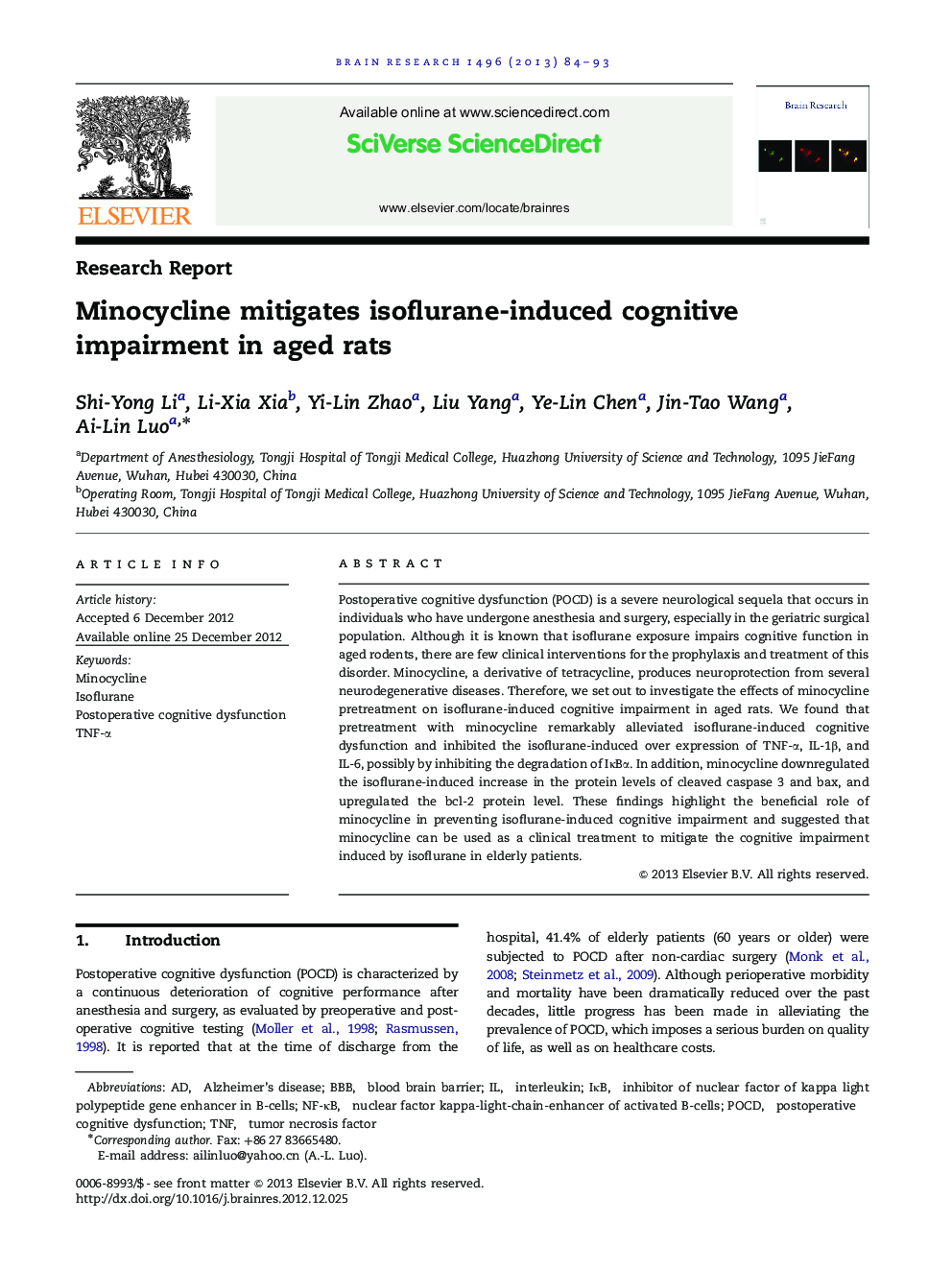| Article ID | Journal | Published Year | Pages | File Type |
|---|---|---|---|---|
| 6263952 | Brain Research | 2013 | 10 Pages |
Postoperative cognitive dysfunction (POCD) is a severe neurological sequela that occurs in individuals who have undergone anesthesia and surgery, especially in the geriatric surgical population. Although it is known that isoflurane exposure impairs cognitive function in aged rodents, there are few clinical interventions for the prophylaxis and treatment of this disorder. Minocycline, a derivative of tetracycline, produces neuroprotection from several neurodegenerative diseases. Therefore, we set out to investigate the effects of minocycline pretreatment on isoflurane-induced cognitive impairment in aged rats. We found that pretreatment with minocycline remarkably alleviated isoflurane-induced cognitive dysfunction and inhibited the isoflurane-induced over expression of TNF-α, IL-1β, and IL-6, possibly by inhibiting the degradation of IκBα. In addition, minocycline downregulated the isoflurane-induced increase in the protein levels of cleaved caspase 3 and bax, and upregulated the bcl-2 protein level. These findings highlight the beneficial role of minocycline in preventing isoflurane-induced cognitive impairment and suggested that minocycline can be used as a clinical treatment to mitigate the cognitive impairment induced by isoflurane in elderly patients.
⺠Minocycline improved the cognitive dysfunction in aged rats exposed to isoflurane. ⺠Minocycline suppressed isoflurane-induced neuroinflammatory response and neuroapoptosis in hippocampus. ⺠Minocycline holds promise in prophylaxis and treatment of POCD.
